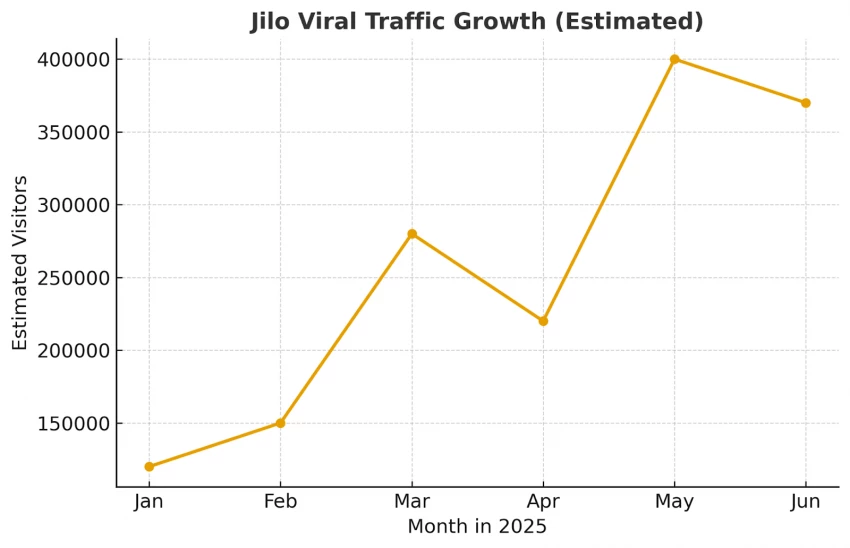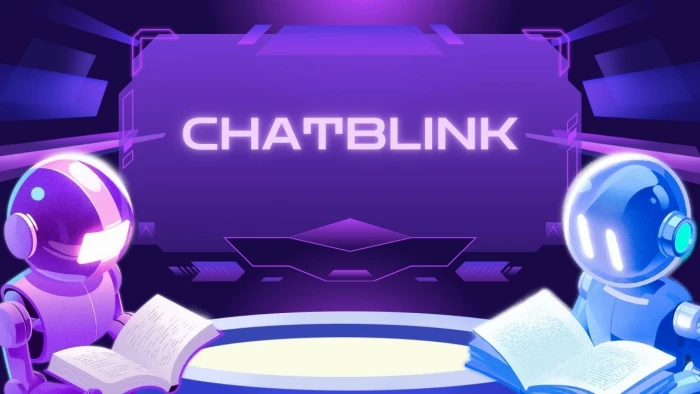A New Name in the Free Streaming Underground
Every few months, the internet discovers a new platform promising “free access” to blockbuster films and trending TV shows. In 2025, that name is Jilo Viral. Unlike established giants such as Netflix or Prime Video, this site came out of nowhere. Yet, it has already carved out a cult following.
The attention hasn’t come through ads or partnerships. Instead, social buzz has done the heavy lifting. Mentions on Reddit forums, the rise of a viral TikTok sound, and casual word-of-mouth are pushing thousands of people to Google “Jilo Viral movies” every day. It’s a case study in how a mysterious site can dominate attention without spending a dime on marketing.
First Look: How Jilo Viral Works Behind the Screen
At first glance, jiloviral.com seems deceptively simple. The homepage loads quickly, offering a grid of film posters and TV show thumbnails. Click any title, and you’re taken to a streaming window with minimal buffering. Unlike mainstream services that ask for sign-ups, Jilo Viral bypasses accounts and passwords altogether.
That design is precisely why it appeals to impatient users. But it’s also what raises suspicion: if there’s no revenue from subscriptions, where does the money come from? The answer is ads. Users report being redirected through multiple pop-up pages before the content loads. Some of those ads promote gambling sites, adult content, or fake “download now” apps, making the browsing experience feel more like a gamble than entertainment.
The Shadow of Anonymity
Transparency is the biggest difference between Jilo Viral and legal competitors. Legitimate services proudly display their corporate logos, board members, customer support numbers, and headquarters addresses. Jilo Viral does none of this.
When you check the WHOIS record for the domain, it’s fully masked under privacy protection services. No real company is listed, no customer care links exist, and even the “About Us” page is empty. That’s a classic red flag. Anonymous ownership allows operators to shut down one domain and reopen under another name within days, leaving users with no accountability.
This “vanishing act” approach isn’t just inconvenient—it creates fertile ground for scams. Once users get comfortable, clones of the site appear with nearly identical design, but with embedded malware links or phishing pages disguised as “premium access” upgrades.
Copyright Red Flags
The most serious concerns surrounding Jilo Viral relate to copyright compliance and content licensing, and these issues go far beyond a missing disclaimer or fine print. Unlike legitimate streaming platforms, Jilo Viral shows no visible evidence of lawful distribution rights for the movies and TV shows it hosts.
Licensed platforms operate within a clearly defined framework. They publicly disclose studio partnerships, regional distribution rights, and legal policies that outline how content is acquired and shared. Jilo Viral provides none of these signals. There are no copyright notices, no licensing acknowledgments, and no content ownership disclosures anywhere on the site.
Several additional red flags stand out:
Recently released titles appear unusually fast
New theatrical releases and fresh OTT originals often appear on Jilo Viral shortly after official launches. In legal distribution models, early access requires complex licensing agreements, which are expensive and highly regulated. The speed at which content appears strongly suggests unauthorized sourcing.
No regional restrictions or geo-licensing controls
Legal streaming platforms enforce country-based access due to regional rights agreements. Jilo Viral streams the same titles globally, with no geographic checks, which is inconsistent with licensed distribution practices.
Absence of takedown or rights-holder contact mechanisms
Legitimate platforms include DMCA takedown processes or rights-holder contact information. Jilo Viral offers no such mechanism, making it difficult for copyright owners to request removal of infringing material.
Use of third-party embedded players and mirrors
Instead of hosting content transparently, many titles appear to load via external or mirrored video players. This tactic is commonly used by piracy sites to distance themselves from direct hosting liability while still enabling access.
Frequent content disappearance and broken links
Movies and shows often vanish without notice, a pattern consistent with copyright takedowns or server seizures. Licensed platforms do not remove content unpredictably without public explanation.
From a legal perspective, this places Jilo Viral in a high-risk category. While laws differ across countries, copyright enforcement is increasingly focused not only on distributors but also on platforms that facilitate access. In some jurisdictions, even streaming copyrighted content—without downloading- can trigger warnings, ISP notices, or fines.
Equally important is the user-side exposure. Streaming from unlicensed sources often routes traffic through aggressive ad networks and tracking scripts. These intermediaries may log IP addresses, device fingerprints, and behavioral data, creating a digital trail that users rarely consider when clicking “play.”
In short, Jilo Viral’s copyright posture is not merely unclear, it is structurally incompatible with how legitimate streaming ecosystems function. The platform relies on opacity, speed, and volume, rather than permission and accountability. For users, this turns casual viewing into a legal and security gamble, whether they realize it or not.
Numbers Don’t Lie: Jilo Viral’s Traffic Boom

Data from SEMrush reveals how quickly Jilo Viral has climbed the charts. In months where a major Marvel or Bollywood release dropped, traffic doubled or tripled. Most visitors come from countries with high demand for free streaming but limited access to affordable subscriptions.
Keyword trends also show how people search for it: “Jilo Viral Spiderman,” “Jilo Viral new movie,” or “Jilo Viral Netflix free.” This behavior highlights a pattern, users aren’t necessarily loyal to the platform itself. They’re hunting for free access to the latest releases, and Jilo Viral has positioned itself to capture that wave.
The Hidden Price of Free Movies
“Free” is rarely free online. Every time a user clicks play on Jilo Viral, they’re entering a digital lottery. Ads, redirects, and suspicious downloads are the real cost. Some ads are harmless but irritating, while others lead to sites loaded with spyware.
Cybersecurity experts warn that many such sites employ malvertising, ads designed to install malware silently. Once installed, these programs can steal personal information, log keystrokes, or even hijack devices for crypto mining. For a casual user just wanting to watch a film, that’s a steep and invisible price.
Who Uses Jilo Viral, And Why
Usage patterns suggest Jilo Viral primarily attracts:
- Viewers seeking immediate, no-cost access to new releases
- Users in regions where paid streaming subscriptions are expensive or fragmented
- Casual streamers who underestimate digital security risks
- Younger audiences influenced by TikTok and Reddit recommendations
There is little evidence of repeat loyalty or community engagement. Most users treat the site as disposable: useful until it disappears, then quickly replaced by the next working link.
What People Are Actually Saying
The Trustpilot review page for Jilo Viral is a battlefield of opinions. Some reviewers defend it as “a quick fix when no other site works.” Others recount horror stories of viruses, endless pop-ups, and sudden shutdowns. The contrast reveals one truth: experience is inconsistent, and safety is unpredictable.
Meanwhile, the IMDB profile linked to “Jilo Viral” adds another layer of confusion. It’s not clear whether this is a real person, a botched listing, or an attempt to tie legitimacy to a site without credibility. Add TikTok memes to the mix, and the brand becomes even harder to define.
Why the Name Refuses to Die Online
Jilo Viral thrives on virality, not reliability. When one domain goes offline, another appears within days. Telegram groups, Discord chats, and subreddit threads circulate the newest URLs. That’s why searching “Jilo Viral new link” always produces results.
This constant rebirth also explains why the site dominates Google Trends during big movie weekends. Unlike licensed platforms that rely on marketing budgets, Jilo Viral piggybacks on social hype cycles. It appears in search results exactly when curiosity peaks, keeping it relevant without ever building lasting trust.
Safer Doors to Walk Through
For viewers who want entertainment without exposing themselves to legal uncertainty, malware risks, or sudden site shutdowns, there are legitimate and safer alternatives to platforms like Jilo Viral. These options may not offer instant access to every new release, but they operate within clear legal and security frameworks.
Ad-Supported Legal Streaming Platforms
Several platforms provide movies and TV shows for free while remaining fully licensed:
Tubi and Pluto TV offer large libraries of films and series supported by advertisements. Because the content is licensed, users do not face the copyright or malware risks associated with unverified streaming sites.
These platforms disclose ownership, licensing partners, and content policies, providing a level of transparency that piracy-based sites avoid.
While ads are unavoidable, they are regulated and far less intrusive than the pop-ups and redirects commonly reported on Jilo Viral.
Subscription Platforms With Regional Pricing
Paid streaming services are often perceived as expensive, but many offer region-specific pricing or bundled plans:
Platforms like Amazon Prime Video and Disney+ frequently cost less per month than the potential financial and security consequences of malware infections.
Subscriptions also include customer support, stable playback quality, and predictable content availability.
From a risk perspective, paid platforms replace uncertainty with reliability.
Official Free Content on YouTube and Studio Channels
YouTube is often overlooked as a legal viewing option:
- Major studios operate verified channels that release older films or episodic content free with ads.
- YouTube’s rental and ad-supported models ensure that creators and rights holders are compensated.
- Unlike unlicensed streaming sites, YouTube enforces copyright claims aggressively, reducing exposure to illegal material.
Public Libraries and Educational Platforms
In some regions, public libraries provide digital movie access through partnerships with licensed streaming services. These platforms are ad-free, legal, and secure, though content catalogs may be limited.
This option is particularly useful for students, educators, and families seeking safe viewing environments.
Why These Options Are Safer in Practice
The difference between Jilo Viral and legitimate platforms is not just legality, it’s accountability:
- Licensed platforms disclose who owns them
- They publish content guidelines and takedown processes
- Ads are vetted through established networks
- User data handling is governed by privacy policies
Even when content is free, these safeguards dramatically reduce the risks of malware, data theft, or legal exposure.
Choosing Stability Over Short-Term Convenience
Free streaming sites like Jilo Viral thrive on urgency, watch now before it disappears. Safer platforms trade that urgency for consistency. Movies may arrive later, but they remain available without constant URL changes or fear of harmful redirects.
For viewers who value peace of mind, safer doors may feel less exciting, but they don’t come with hidden costs.
Spotting a Risky Site Before Clicking
If you’re not sure whether a site is legitimate, here are the tell-tale signs:
- Domain hopping: constant URL changes (e.g., jiloviral.net → jiloviral.co → jiloviral.xyz).
- Ad overload: every click triggers 2–3 pop-ups.
- No legal disclosures: no mention of distribution rights or licensing agreements.
- Fake endorsements: fabricated IMDB listings or Trustpilot reviews designed to build credibility.
By training yourself to recognize these signals, you can avoid falling for dangerous clones and phishing traps.
Wrapping Up: The Verdict on Jilo Viral
Jilo Viral sits in that strange corner of the internet where hype collides with hazard. It delivers free movies, but in exchange for your safety, privacy, and peace of mind. Its lack of transparency, shaky legality, and volatile URLs make it unreliable at best and harmful at worst.
If you’re tempted by convenience, weigh it against the long-term cost. Legal services might not be free, but they guarantee stable access, consistent quality, and zero fear of malware. In the end, choosing safer paths keeps your screen time about entertainment—not recovery from digital damage.
Quick Questions People Ask
Does Jilo Viral have hidden fees?
No. The site profits from ads, but some of those ads can trick you into downloading harmful files.
Can I get fined for streaming from Jilo Viral?
Depending on your country, yes. Some nations issue fines for watching pirated content.
Why are there so many different Jilo Viral domains?
Operators switch URLs to escape blacklisting and keep traffic flowing.
What’s the safest free option instead?
Ad-supported legal services like Tubi, Pluto TV, and Crackle are far safer choices.







